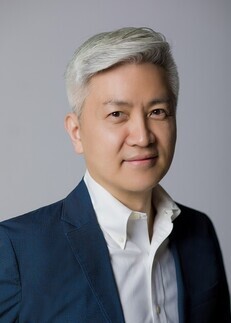The cover of the Seoul National University Institute for Future Strategy’s US-China relations task force report.
In preparation for a second Trump administration, a team dedicated to researching US-China relations under Seoul National University’s Institute for Future Strategy (Director Kim Jun-ki) published its report, “Towards Co-Resilience: What the United States and South Korea Can Do Together in an Era of US-China Rivalry.”
To prepare for a new US administration following the presidential election, the task force engaged in thorough debate and discussion with current and former bureaucrats, businesspeople, and experts who hail from both Seoul and Washington regarding China policy. The task force then drafted new perspectives and nine concrete measures for South Korea-US cooperation as they pertain to China policy.
Sohn In-joo, a professor of political science and international relations at Seoul National University, acted as project manager for the task force. Sohn emphasized that the report was significant in that it preemptively offers a strategy and analyzes South Korea’s interests when it comes to the policies expected from the incoming Trump administration. Instead of passively responding to the Trump administration’s unpredictable policies, the report aims to help South Korea proactively influence the US policy discussion with South Korea’s interests in mind.

Sohn In-joo, professor of politics and international relations at SNU.
Written in English, the report communicates to US policy elites that South Korea is no longer the subject of unilateral influence amid the US-China rivalry, emphasizing that South Korea now has the power and the responsibility to influence the trajectory and results of that rivalry. On Dec. 25, at 10 pm (9 am Eastern Time Zone), Seoul National University’s Institute for Future Strategy will host a webinar to announce the results of its report to the Center for Strategic and International Studies (CSIS) and facilitate a discussion of its content.
The report presents the incoming US administration with a “co-resilience” strategy. It also contains nine concrete policy proposals, including bolstering the US-ROK “shipbuilding alliance” to enhance the strategic capabilities of war vessels and while reducing cost. It also proposes the establishment of a multilateral AI research institute (MARI). Additionally, it argues that the new US administration needs to resume denuclearization negotiations with North Korea while simultaneously conducting nuclear arms control talks with China and Russia.
The report prioritizes the resumption of the US’ negotiations with North Korea alongside four-party talks that include South Korea and China. Since North Korea’s denuclearization is a complex issue that involves US-China competition and rivalry, the report argues that it provides ways for Washington and Beijing to cooperate on this matter. Under the principles of the peaceful use of nuclear technology and the Treaty on the Non-Proliferation of Nuclear Weapons, the report proposes allowing South Korea to process spent nuclear fuel, which would reduce reliance on Russian nuclear fuel. It also proposes bolstering South Korea-US cooperation on the export of nuclear energy technology.
The entire report is available on the Institute for Future Strategy website (https://ifs.snu.ac.kr/en/news/publication?mode=view&pubidx=43), where you can also apply to partake in the institute’s webinar with the CSIS.
By Park Min-hee, senior staff writer
Please direct questions or comments to [[email protected]]
This post was originally published on here






